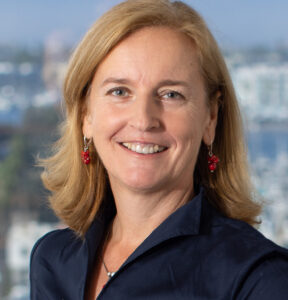Ewa Deelman received her Ph.D. in Computer Science from the Rensselaer Polytechnic Institute. Following a postdoc at the UCLA she joined the University of Southern California’s Information Sciences Institute (ISI) in 2000, where she serves as a Research Director and leads the Science Automation Technologies Center. She is also a Research Professor in the USC Computer Science department and a Fellow of AAAS, IEEE, and USC/ISI. Her team explores the interplay between automation and the management of scientific workflows, including performance modeling, scheduling, resource provisioning, provenance tracking, and data management. Dr. Deelman pioneered workflow planning for computations executing in distributed environments, leading to the design and development of the Pegasus Workflow Management software used today in numerous science applications. In 2015, Dr. Deelman received the HPDC Achievement Award for her contributions to the area of scientific workflows and in 2022 she received the Euro-Par Achievement Award for her outstanding contributions to parallel computing.
Presentation Title:
SWARM: A Decentralized Multi-Agent Model for Workflow Management
Presentation Abstract:
The SWARM project introduces a novel decentralized model for managing scientific workflows in distributed, heterogeneous computing environments. Inspired by swarm intelligence, SWARM replaces traditional centralized workflow management with a fully distributed, agent-based architecture. Each agent represents and manages local resources—ranging from edge devices to HPC clusters—and collectively coordinates job selection, scheduling, and fault recovery through scalable consensus protocols and dynamic overlay networks. This talk will present the SWARM model’s application to workflow management, highlighting how agents make local decisions that result in emergent global behavior and system-level resilience. The talk also explores how the same decentralized, agent-driven architecture can be extended to federated learning scenarios, enabling collaborative model training across diverse resources without centralized control. Through simulation and emulation results, we demonstrate how SWARM lays the foundation for robust, adaptive, and scalable coordination of both scientific workflows and distributed AI workloads executing across the DOE computing ecosystem.
